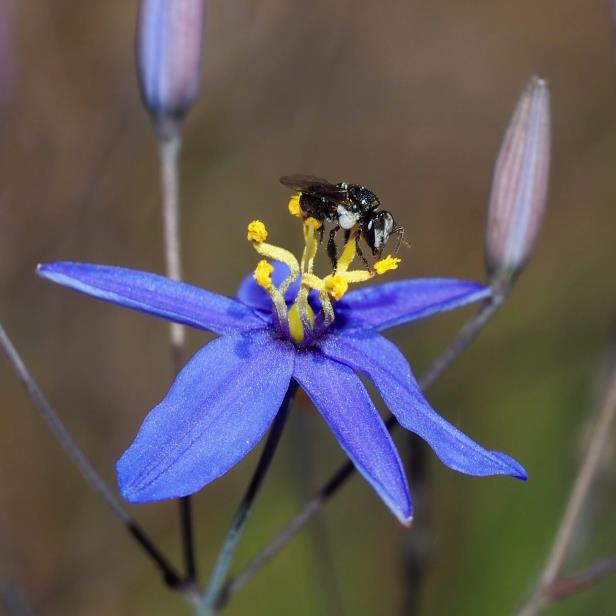Supporting the health and expansion of the Australian stingless bee industry
James Cook and Robert Spooner-Hart
A major new research project on stingless bees has just begun, funded through the Hort Innovation Pollination Fund. The new project, “Supporting the health and expansion of the Australian stingless bee industry”, will run from 2023-2028 and is led by Western Sydney University in collaboration with Griffith University, beekeepers and crop growers, alongside Hort Innovation and Agrifutures Australia. It follows on from the recently completed project “Stingless bees as effective managed pollinators for Australian Horticulture”, which has a final report free to download HERE: https://www.horticulture.com.au/growers/help-your-business-grow/research-reports-publications-fact-sheets-and-more/ph16000/
The previous project (“Stingless 1”) explored the potential of stingless bees as managed pollinators in a range of crops and cropping situations. We found that they are very promising managed pollinators for several important crops, especially tropical tree crops, and berries grown in protected cropping. “Stingless 2” will involve further exploration of the range of crops that stingless bees can pollinate well, including some emerging industries and native Australian fruits.
However, the major focus will be on research to better understand the health of stingless bees, both on and off farm, and to find ways to promote expansion of the beekeeping industry through new techniques and improved practices.
Overall, the major aims of Stingless 2 are to:
- Characterise the nutritional preferences and requirements of stingless bees before, during and after crop pollination by identifying pollen species and nutrients in the pollen and nectar that foragers bring back to the hive and/or feed to their brood.
- Test developing and commercially available nutritional supplements for stingless bees, including methods of providing them to colonies, and whether diet supplementation can improve crop pollination.
- Investigate the main pests, pathogens and pesticides that affect stingless bees and explore methods to mitigate their spread and/or impact.
- Conduct a review of pollination efficacy, knowledge gaps and opportunities for stingless bees across established and emerging horticultural crops.
- Test methods to a) improve colony reproduction rates and pollination by manipulating hive management practices; b) improve crop pollination through evidence-based hive stocking rates, timing and location of deployment in some key crops where stingless bees are already used.
Clearly, it is crucial for the research teams to work closely with beekeepers and growers to make the most of this research opportunity and we will be organising stakeholder events to facilitate collaboration. With this in mind, look out for announcements on the ANBA web page and in future issues of the cross-pollinator. We plan to present and discuss the project in more detail at some regional ANBA group meetings and we will soon advertise a one-day workshop to be held in Brisbane/Gold Coast or Northern Rivers, which we hope many beekeepers will be interested to attend.

